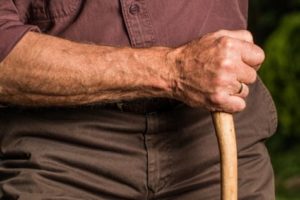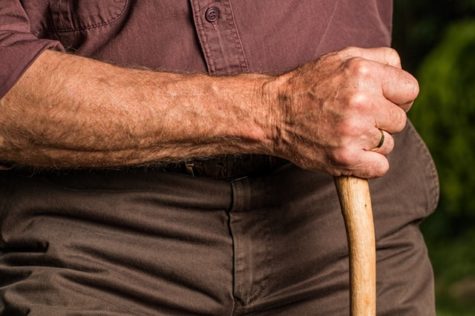LONDON — We all experience the weakening of our muscles, bones, and joints as we pass middle age, but can we control the speed at which we grow frail? Scientists say yes, and it may be as simple as altering what we eat.
A new analysis shows that following the Mediterranean diet may cut an older adult’s risk of frailty in half.

Elderly people who battle higher levels of frailty tend to exhaust more quickly as their muscles lose mass and often struggle with a poorer quality of life. They’re more likely to suffer from dangerous falls and are more susceptible to fractures and trips to the hospital. Being frail is linked to a greater chance of living in a nursing home, as well as battling dementia and even suffering an early death.
Researchers from the University College London studied the effects of an improved diet on older individuals and their risk of frailty. They analyzed four different international studies that tracked the health outcomes for 5,789 participants from China, France, Italy, and Spain who followed the Mediterranean diet. The diet relies heavily on plant-based foods (fruits and veggies, whole grains, nuts), and followers eat fish or poultry at least twice a week, while limiting red meat consumption to just a few times each month at most, according to the Mayo Clinic.
The authors determined that older participants who stuck to the diet regimen were much less likely to become frail.
“We found the evidence was very consistent that older people who follow a Mediterranean diet had a lower risk of becoming frail,” says co-author Dr. Kate Walters in a release. “People who followed a Mediterranean diet the most were overall less than half as likely to become frail over a nearly four-year period compared with those who followed it the least.”
That’s because the researchers say that participants who followed the plan religiously had higher energy and activity levels, while keeping up their muscle strength and weight over time. Still, because their study was simply an analysis of other experiments, Walters and co-author Dr. Gotaro Kojima couldn’t be sure that other factors didn’t play a role in the participants’ health.
“While the studies we included adjusted for many of the major factors that could be associated—for example, their age, gender, social class, smoking, alcohol, how much they exercised, and how many health conditions they had—there may be other factors that were not measured and we could not account for,” explains Dr. Walters. “We now need large studies that look at whether increasing how much you follow a Mediterranean diet will reduce your risk of becoming frail.”
Another recent study showed that frailty was actually reversed in some cases when older adults exercised their bodies and their brains, while also keeping up a healthier diet.
“Our study supports the growing body of evidence on the potential health benefits of a Mediterranean diet, in our case for potentially helping older people to stay well as they age,” concludes Dr. Kojima.
The study’s findings were published in December in the Journal of the American Geriatrics Society.

Comments
Comments are closed.